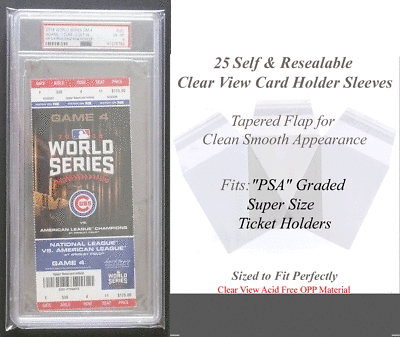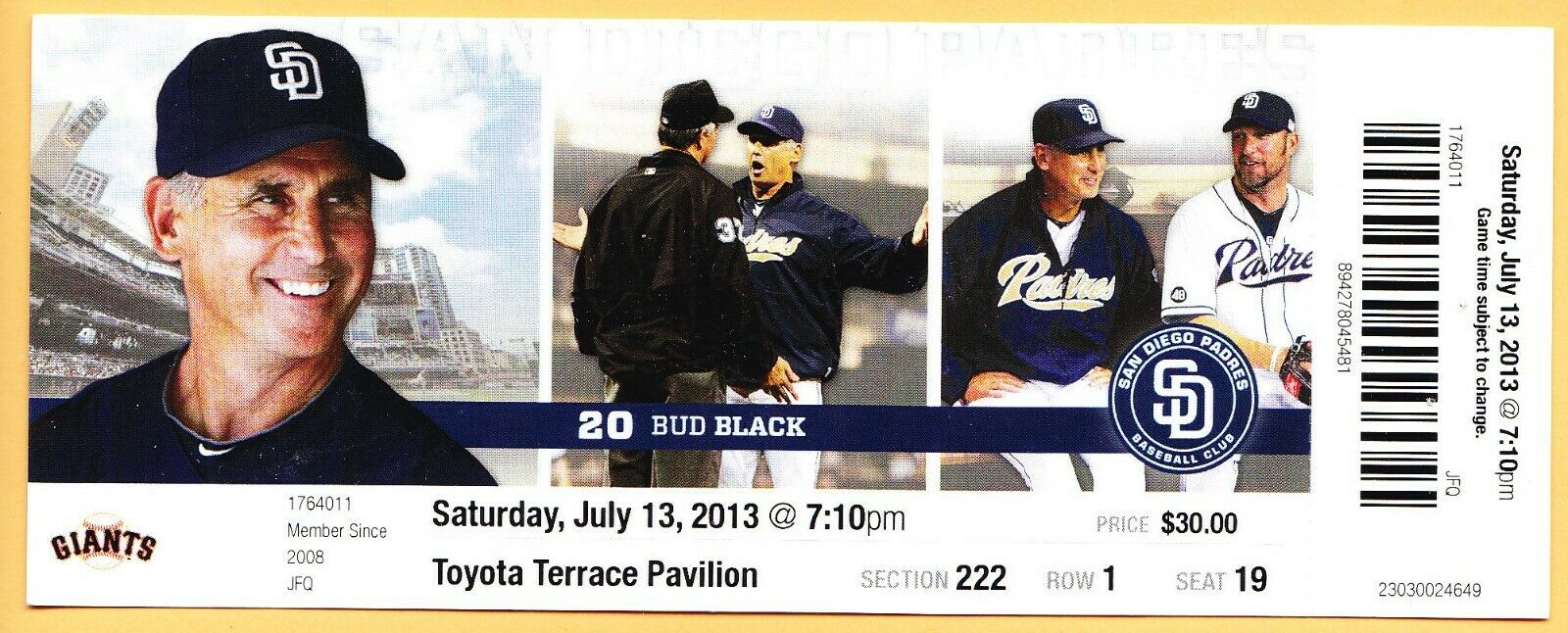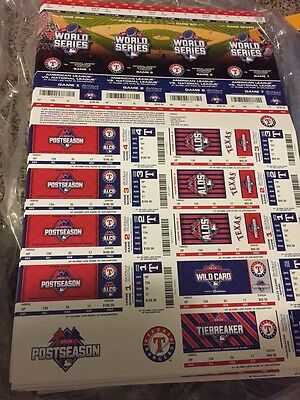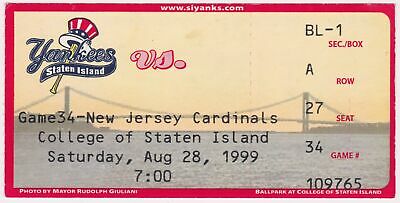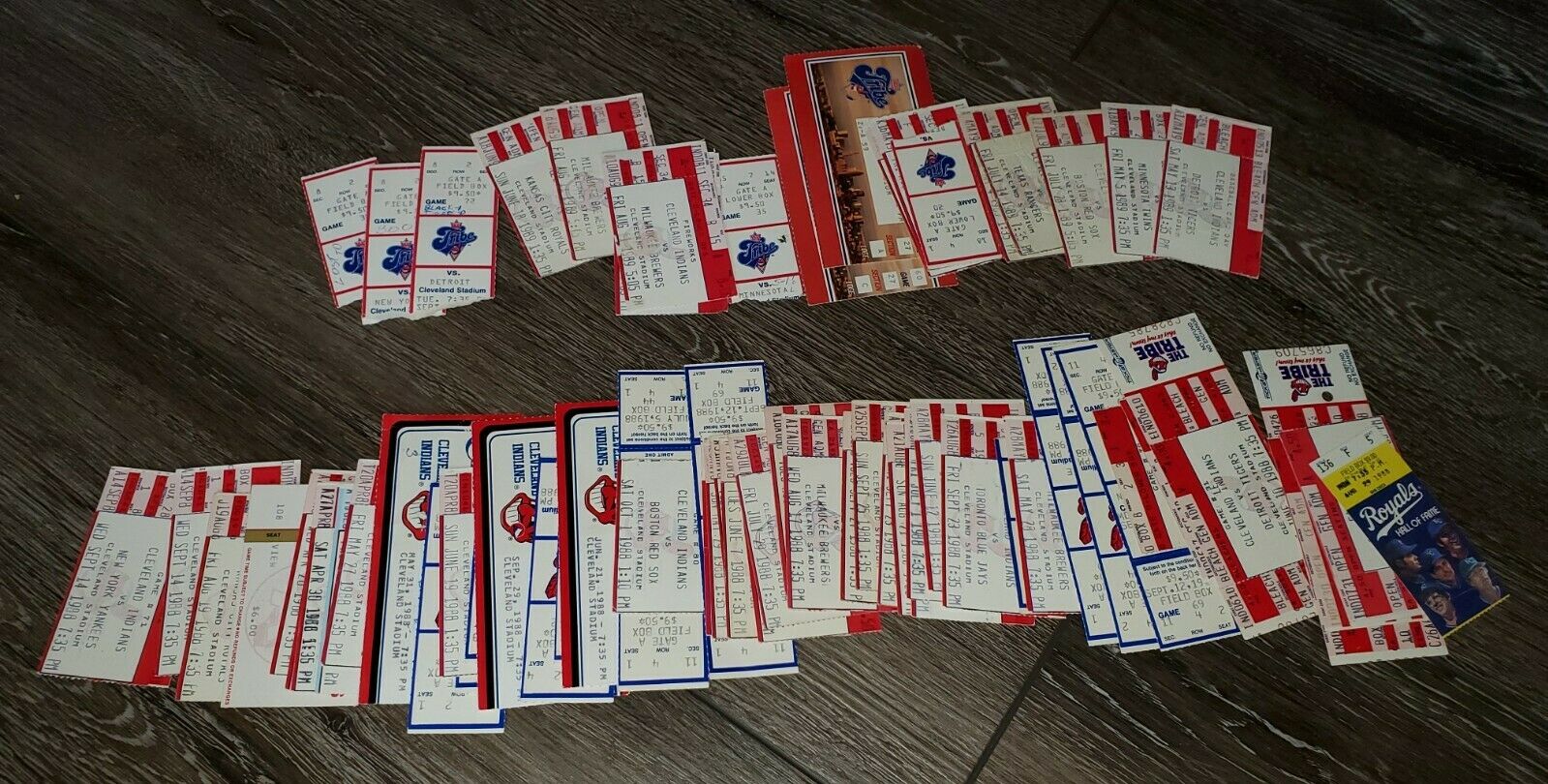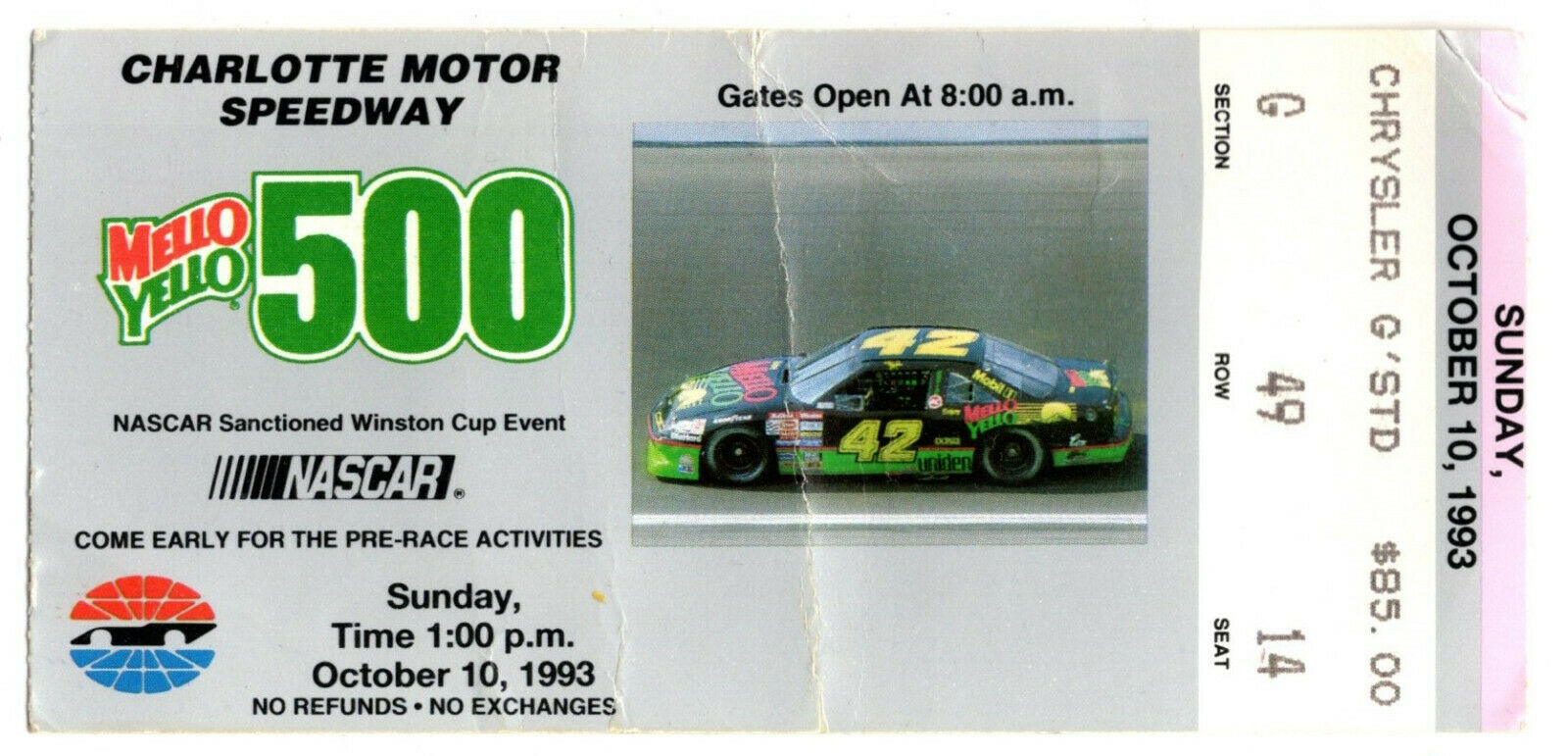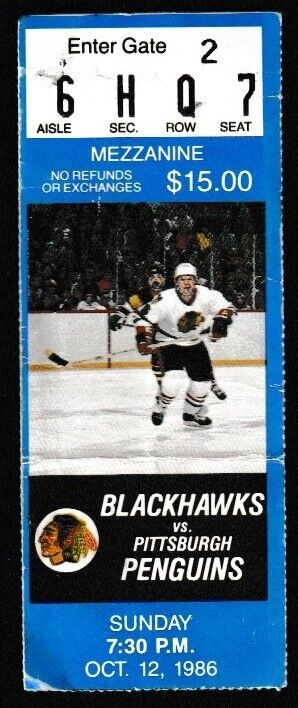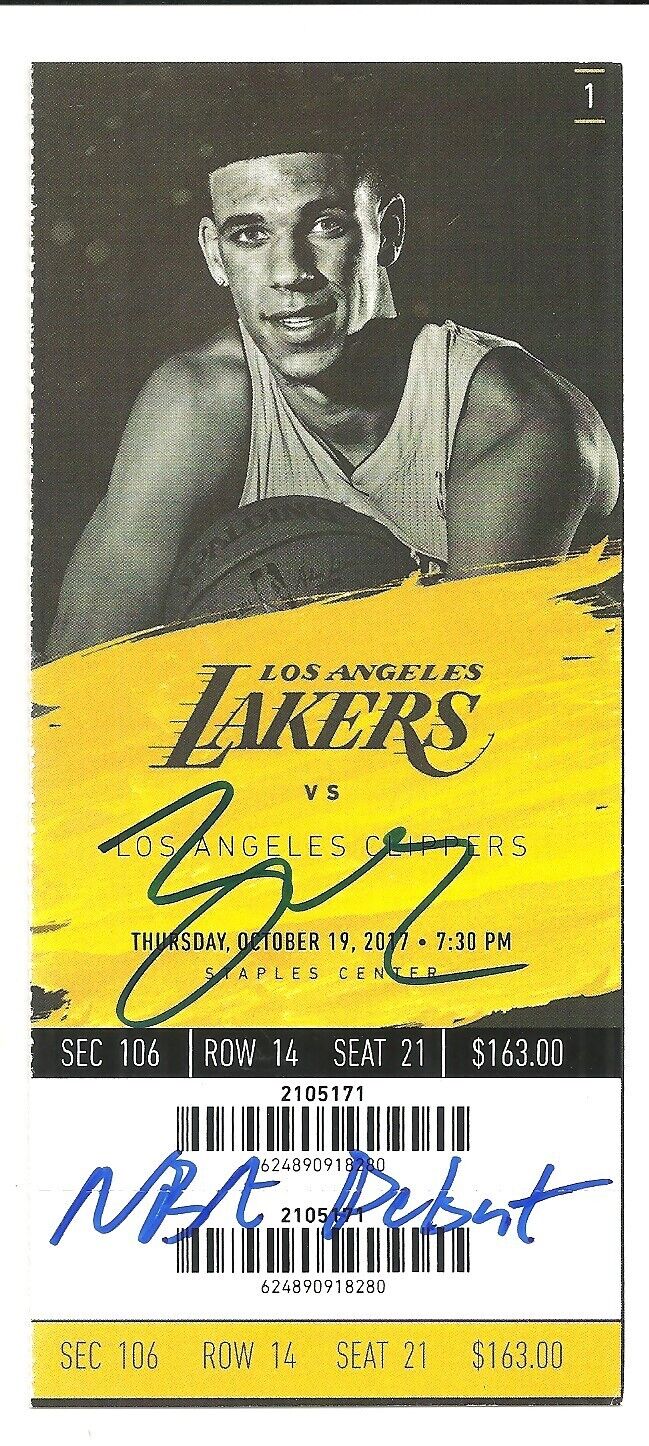-40%
Pete Rose last final season game played with Phillies ticket stub 10/1/1983 Reds
$ 10.29
- Description
- Size Guide
Description
October 1, 1983 Ticket stub in good condition where Pete Rose of the Philadelphia Phillies plays in his last regular season game as a Phillies after 5 seasons with them (they would play in the post season) as the following year he would play with the Montreal Expos and then finish his career with the Cincinnati Reds.Peter Edward "Pete" Rose, Sr. (born April 14, 1941, in Cincinnati, Ohio), nicknamed Charlie Hustle, is a former player and manager in Major League Baseball. Rose played from 1963 to 1986, best known for his many years with the Cincinnati Reds. Rose, a switch hitter, is the all-time Major League leader in hits (4,256), games played (3,562), at bats (14,053), and outs (10,328). He won three World Series rings, three batting titles, one Most Valuable Player Award, two Gold Gloves, the Rookie of the Year Award, and made 17 All-Star appearances at an unequaled five different positions (2B, LF, RF, 3B, and 1B). Rose's nickname, "Charlie Hustle", was given to him for his play beyond the "call of duty" while on the field. Even when being walked, Rose would run to first base, instead of the traditional walk to base. Rose was also known for sliding headfirst into a base, his signature move. Rose made his Major League debut on opening day, April 8, 1963, against the Pittsburgh Pirates and drew a walk. On April 13, Rose – who was 0-for-11 at the time – got his first Major League hit, a triple off Pittsburgh's Bob Friend. He hit .273 for the year and won the National League Rookie of the Year Award, collecting 17 of 20 votes.
On April 23, 1964, in the top of the ninth inning of a scoreless game in Colt Stadium, Rose reached first base on an error and scored on another error to make Houston Colt .45s rookie Ken Johnson the first pitcher to lose a complete game no-hitter. Rose slumped late in the season, was benched, and finished with just a .269 average.
Rose came back in 1965 to lead the league in hits (209) and at-bats (670), and hit .302, the first of his 10 seasons with 200-plus hits and the first of 15 consecutive .300 seasons. He hit a career-high 16 home runs in 1966, then switched positions from second base to right field the following year. In 1968, Rose started the season with a 22-game hit streak, missed three weeks (including the All-Star Game) with a broken thumb, then had a 19-game hit streak late in the season. He had to finish the season 6-for-9 to beat out Matty Alou and win the first of two close NL batting-title races.
Rose had his best offensive season in 1969, leading the league in batting for the second straight season (.348) and leading the league in runs with 120. As the team's leadoff man he was a catalyst, rapping 218 hits and walking 88 times. He hit 33 doubles, 11 triples, and a career-best 16 homers. He drove in 82 runs, slugged .512 (by far the highest mark of his long career), and had a .432 OBP (also a career best). But the Reds finished four games out of first, and Rose lost the MVP to Willie McCovey. Rose and Roberto Clemente were tied for the batting title going into the final game; Rose bunted for a base hit in his last at-bat of the season to beat out Clemente.
On July 14, 1970, in brand new Riverfront Stadium (opened just two weeks earlier), Rose was involved in one of the most famous plays in All-Star history. Leading off against California's Clyde Wright in the 12th inning, Rose reached first and went to second on a single by the Dodgers' Billy Grabarkewitz. The Cubs’ Jim Hickman then singled sharply to center. Amos Otis' throw beat Rose to the plate, but Rose barreled over Indians catcher Ray Fosse to score the winning run. It has been written that Fosse suffered a separated shoulder in the collision, but it went undiagnosed initially. Fosse continued to hit for average (he finished the season at .307), but with diminished power — he had 16 homers before the break but only two after. He played through the 1979 season, but never approached his first-year numbers. The collision also caused Rose to go on the disabled list for two days for the first and only time in his career. Fosse did not miss any games immediately after the incident.
Pete Rose at bat during the Big Red Machine yearsIn 1973, Rose won his third and final batting title with a .338 average, collected a career-high 230 hits and was named the NL MVP. The Reds ended up losing the National League Championship Series to the Mets despite Rose’s eighth-inning home run to tie Game One and his 12th-inning home run to win Game Four. During Game Three of the series, Rose got into a fight with the popular Mets shortstop Bud Harrelson while trying to break up a double play; the fight resulted in a bench-clearing brawl. The game was nearly called off when, after the Reds took the field, fans threw objects from the stands at Rose, causing the Reds team to leave the field until order was restored.
On May 5, 1978, Rose became the 13th and youngest player in Major League history to collect his 3,000th career hit, with a single off Expos pitcher Steve Rogers. On June 14 in Cincinnati, Rose singled in the first inning off Cubs pitcher Dave Roberts; Rose would proceed to get a hit in every game he played until August 1, making a run at Joe DiMaggio’s record 56-game hitting streak, which had stood virtually unchallenged for 37 years. The streak started quietly, but by the time it had reached 30 games, the media took notice and a pool of reporters accompanied Rose and the Reds to every game. On July 19 against the Phillies, Rose was hitless going into the ninth with his team trailing. He ended up walking and the streak appeared over. But the Reds managed to bat through their entire lineup, giving Rose another chance. Facing Ron Reed, Rose laid down a perfect bunt single to extend the streak to 32 games.
He would eventually tie Willie Keeler's single season National League record at 44 games; but on August 1, the streak came to an end as Gene Garber of the Braves struck out Rose in the ninth inning. The competitive Rose was sour after the game, blasting Garber and the Braves for treating the situation "like it was the ninth inning of the 7th game of the World Series" and adding that "Phil Niekro would have given me a fastball to hit."
On a team with many great players that is widely acknowledged by many as one of the greatest teams ever, Rose was viewed as one of the club's leaders (along with future Hall of Famers Johnny Bench, Joe Morgan and Tony Pérez). The influence that Rose's hustling team attitude had on his teammates was very likely a factor in the success of what was called "The Big Red Machine." His 1975 performance was considered outstanding enough that he earned the Hickok Belt as top professional athlete of the year and Sports Illustrated magazine's "Sportsman of the Year" award. The following year, Rose was a major force in helping the Reds repeat as World Series winners. The 1976 Reds swept the Phillies 3-0 in the National League Championship Series and then swept the Yankees 4-0 in the World Series. The 1976 Cincinnati Reds remain the only team since the expansion of the playoffs in 1969 to go undefeated in the postseason.
In 1979, Rose became a free agent and signed a four-year, .2-million contract with the Philadelphia Phillies, temporarily making him the highest-paid athlete in team sports. The Phillies were in the middle of the greatest era in the history of the franchise when Rose came on board. They had won the National League East three years running (1976-1978) two of which were won with 101 win seasons. Although they missed the postseason in his first year with the team, they earned three division titles (one in the first half of the strike shortened 1981 season), two World Series appearances and one World Series title (1980) in the following four years. (Ironically, Pete had the worst season of his career in 1983 when the Phillies played in their second World Series in four years.)
After being benched in the 1983 World Series, Rose signed a one-year contract with the Montreal Expos in 1984. On April 13, batting right-handed, Rose doubled off of the Phillies’ Jerry Koosman for his 4,000th career hit, joining Ty Cobb to become only the second player to enter the 4000 hit club. The hit came 21 years to the day after Rose's first career hit. Rose was traded to the Reds for infielder Tom Lawless on August 15 and was immediately named player-manager, replacing Reds' manager Vern Rapp. Major League Baseball has not had another player-manager since Rose.
On September 11, 1985, Rose was thought to have broken Ty Cobb’s all-time hits record with his 4,192nd hit, a single to left-center field off San Diego Padres pitcher Eric Show, though a subsequent review of Ty Cobb's hits revealed that two of his hits were counted twice. As a result, Pete Rose actually broke the all-time hits record against the Cubs' Reggie Patterson with a single in the first inning of a Reds' 5-5 called game against Chicago on September 8. Because of his record-breaking hit, ABC's Wide World of Sports named Rose Athlete of the Year that year. Rose accumulated a total of 4,256 hits before his final career at-bat, a strikeout against San Diego’s Goose Gossage on August 17, 1986. On November 11, Rose was dropped from the Reds’ 40-man roster to make room for pitcher Pat Pacillo, and he unofficially retired as a player.


